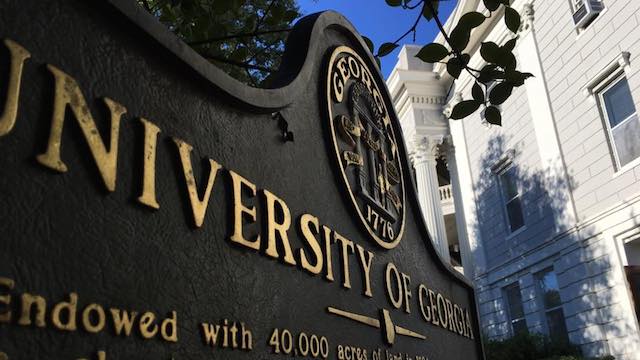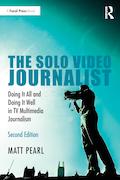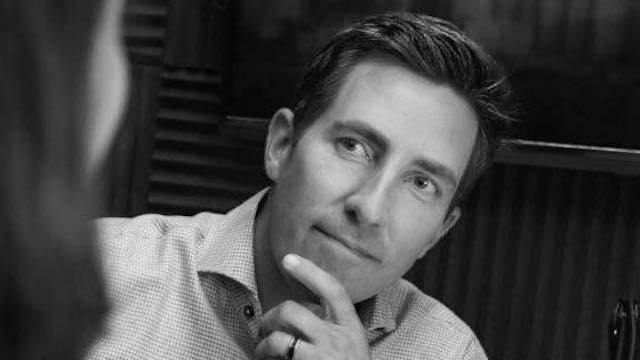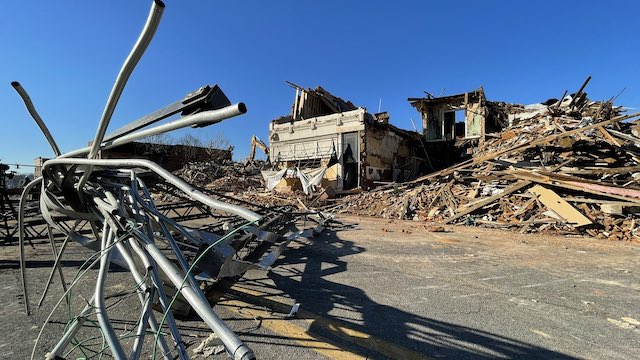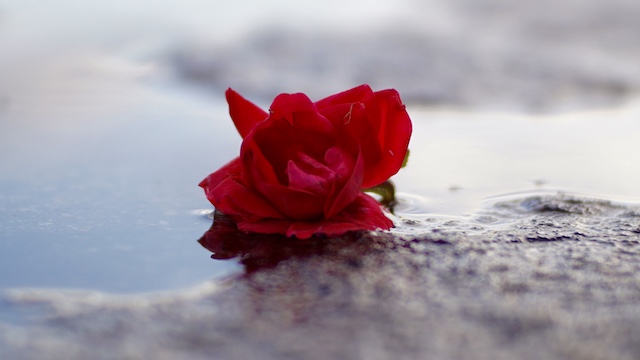“I’m not just reporting on this city and this university. I was a student here.”
That’s how I introduced myself to viewers in dozens of stations across the country. In my first story as a national correspondent with E.W. Scripps, I covered the efforts of advocates in Athens, Georgia to gain recognition for a long-forgotten Black neighborhood. Linnentown existed adjacent to the campus of the University of Georgia … until the city and university used eminent domain to clear it out to build three new dorms. In 2021 the city apologized and pledged reparations to Linnentown descendants. The university wanted no part of their efforts.
Inserting myself into the story felt like a leap. The next lines of my stand-up felt like a pole vault.
“[I was] a graduate student in the journalism school,” I said, standing on downtown Athens’ main drag. “A school named for an old newspaper editor that once declared the white race was superior.”
With that, less than two minutes into my on-air career at Scripps, I had revealed the complexity both of my story and in my heart.
***
In storytelling circles today, you hear two increasingly loud schools of thought about how much journalists should reveal about themselves. One school says we should stay in the background, keep our social media feeds clear of opinion and controversy, and focus on being not personalities but reporters. Then there are folks like Julia Munslow, a senior platform editor for the Wall Street Journal who wrote a recent piece for Nieman Lab titled “Gen Z demands personality from journalists.”
In her essay, Munslow makes the case that younger viewers want to know – or at least be able to find out – more about who’s delivering their news. “Gen Z values authenticity,” she wrote. “They crave reality after growing up among scores of Photoshopped advertisements; they believe strongly in ethical consumption and value high-quality experiences. I believe they’ll demand these things of the news industry, and that it will lead to a call for radical transparency.”
There are two components of how “radical transparency” is taking hold. One is the lane where journalists become mini-celebrities. We post about what we’re doing behind the scenes. We post about where we went last weekend. We post photos of our families, and they become semi-public figures too. That lane comes with its own complications and is worthy of way more than a paragraph.
But that’s not where I’m focused here. I’m focused on how much we are willing to reveal about our identities, subjectivities, and life decisions. Should journalists need to reveal their voting records? Should they discuss how the stories they’re reporting make them feel? Should they project their complexities?
And, per Munslow’s point, in the future, how much will we be given a choice about these questions? Will our audiences demand answers we feel uncomfortable providing?
In my case, the choice was mine. I had lived in Atlanta for a dozen years and spent numerous days in Athens shooting stories. I didn’t go to the University of Georgia as an undergrad, but I spent weeks there during grad school walking around campus and patronizing numerous Athens restaurants. More importantly, I had made the decision to attend the journalism school and gave little thought to the man for whom it was named. I only knew about the program to which I applied. It was diverse and exhilarating. It encouraged me to think deeply and richly about the subjects I covered.
(Seriously, look back at my previous posts about the program. I rave about it. And I still rave about it.)
My time at UGA was filled with many conversations about race and culture, including at the university and its city. I walked away with complicated feelings about both. And when the time came to do a story about race in Athens, I was equipped to cover it with the complexity it deserved.
I also felt I should reveal my experience in the story.
I wrote about not just the actions of the past but the experience of living in Athens in 2021. I noted how the first major sight off the highway was the Plantation Buffet. I shot footage of a downtown restaurant called General’s that until the previous year had been named for a Confederate general.
And for a piece that spoke about the power of institutions, I spoke in my standup about having been a student at this one.
***
I have produced dozens of stories for E.W. Scripps so far, many of which have included standups. I haven’t involved myself anywhere near the way I did that first time.
I didn’t receive any backlash for it. In fact, most people who responded to the story – including fellow University of Georgia graduates – applauded my transparency. But while I stand by my decision, I acknowledge how every story brings its own challenges – and how we bring our subjectivities to them.
But whether I reveal them or not, I always do my best to consider them. I believe in constantly challenging my preconceived notions and biases. I think my work continues to get stronger because I continue to push.
I encourage the same out of my colleagues. Those of us who carry the storytelling mantle owe it to our audiences to think critically about every story we produce.
The Solo Video Journalist is available for purchase. You can find it on Amazon, Barnes & Noble, and the publisher’s web site.
Matt Pearl is the author of the Telling the Story blog and podcast. Feel free to comment below or e-mail Matt at matt@tellingthestoryblog.com. You can also follow Matt on Facebook, Twitter, and his web site, mattpearl.tv.
